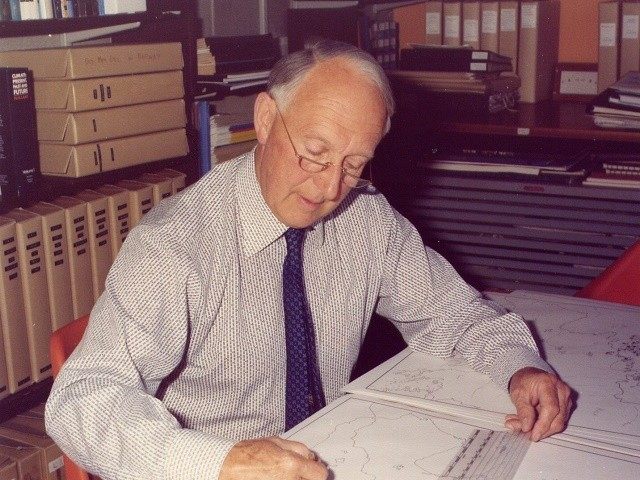2/14/2015

source

UEA
Ever since Climategate, the Climatic Research Unit at the University of East Anglia has enjoyed just international renown as a world centre of data-fudgin’, scientific-method-abusin’, FOI-dodgin’, decline-hidin’, grant-troughin’, junk-science-endorsin’ global warming propaganda.
But did you know that the chap who founded the institution, Hubert Lamb, was a committed sceptic who would without a shadow of doubt have been perfectly appalled by the way the CRU has since prostituted itself in the bankrupt cause of climate change alarmism?
No, of course you didn’t – and with very good reason.
Here, for example, is what one of the CRU’s subsequent directors, Trevor Davies, had to say when he wrote Lamb’s obituary in 1997:
“[Lamb experienced] the satisfaction of convincing the remaining doubters of the reality of climate variation on time-scales of decades and centuries.”
Here is what the Climatic Research Unit’s website says in its biography of its founder:
He did more than any other scientist of his generation to make the academic community aware of climate change. However, in the years after his retirement the emphasis of research shifted towards evaluating the role played by human activities. He was well acquainted with the pioneering works of Svante Arrhenius in Sweden, and G.S. Callendar in England, and wrote in 1997 that, ‘it is now widely thought that the undoubted warming of the world climate in the twentieth century is attributable to the increased concentration in the atmosphere of so-called greenhouse gases’
Yes, it’s true that the obituary goes on to mention that: “However, he always referred back to the instrumental record, and his attitude to greenhouse warming remained guarded.”
But it would, I think we can agree, be very easy to read both those obituaries and come away with the impression that Hubert Lamb was, to all intents and purposes, one of the founding fathers of “climate change” theory and that he would largely have been on the side of the current scientific “consensus” on the global warming.
However, as a fascinating new paper produced by Bernie Lewin for the Global Warming Policy Foundation reveals, nothing could have been further from the truth.
Lamb’s big thing during his period as a climate scientist was “natural variation.” It’s thanks largely to Lamb’s seminal work Climate: Present, Past & Future that we know about the Medieval Warming Period and the Little Ice Age. These eras are key to the climate change debate because what they demonstrate is that our planet has shown itself perfectly capable of dramatically warming and cooling without any anthropogenic input. And if it was true in Medieval (and Roman, and Minoan times), then how can we sure it isn’t also the case with Twentieth Century warming? This is why – as we saw in the Climategate emails – the alarmists are so desperate to erase the Medieval Warming Period (“MWP”) from history. It is, as they might say the most inconvenient of truths)
If you want to read more about what Lamb thought and believed read the GWPFreport or this piece by Paul Homewood.
As you do, you will surely relish the bitter irony that the climatologist who did more than anything to put “climate change” studies on the map was about as sceptical and sceptical as can be. During his lifetime, he saw the way the wind was blowing and loathed it: his field, he realised, was being hijacked by computer modelers with pre-determined views on the causes of climate change. These models were anathema to Lamb, who maintained that there could be no real understanding of what climate might do in the future until we could first find an explanation for the natural variations in the past.
The chutzpah with which the alarmists have claimed Lamb as one of their own is breathtaking – if not altogether surprising given their known fondness for tampering with the historical record.
Exactly the same thing happened with Roger Revelle, the lecturer cited by Al Gore in An Inconvenient Truth as the expert who first alerted him to the problem of man-made global warming.
But as I report in my book Watermelons, Revelle was a sceptic, not an alarmist.
…some irony in the fact that Vice-President Gore—one of the most scientifically literate men to sit in the White House in this century—(is) resorting to political means to achieve what should ultimately be resolved on a purely scientific basis. The measure of good science is neither the politics of the scientists nor the people with whom the scientist associates. It is the immersion of the hypothesis into the acid of truth. That’s the hard way to do it, but it’s the only way that works.
Where Stalin used to airbrush his enemies out of history, the alarmists have gone one better by greenbrushing their opponents in such a way as to make it look as if they were allies all along.
source


No comments:
Post a Comment